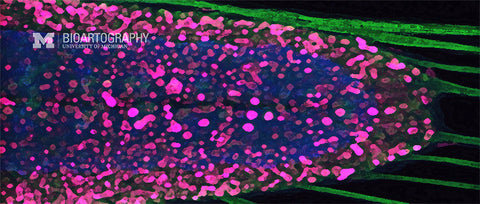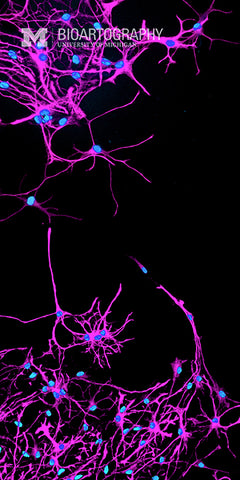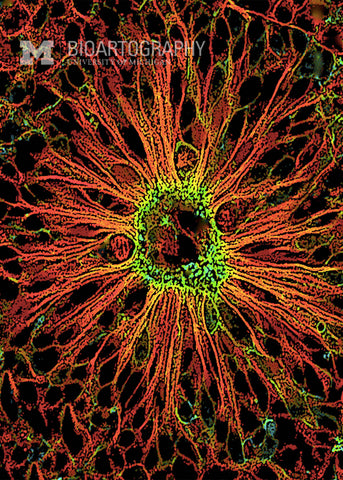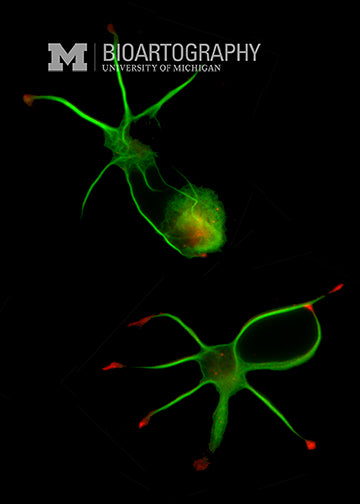
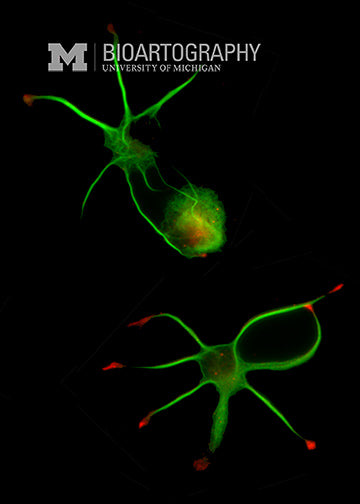
Kristen Verhey, Ph.D., Associate Professor, Department of Cell and Developmental Biology, University of Michigan Medical School
The human brain contains approximately 100 billion neurons (or nerve cells). Neurons are information messengers; they consist of a cell body (or soma) from which the input and output processes extend. The input or receiving processes are the branching, tree-like dendrites whereas the output or transmitting process is the cable-like axon. The unidirectionality of information flow depends on the proper formation of axons and dendrites during development. Many neurodegenerative diseases arise from genetic or environmental lesions that result in an inability to transmit proper signals. The three neurons in this image are from the hippocampus of a developing mouse; they are just beginning to form axons and dendrites.

